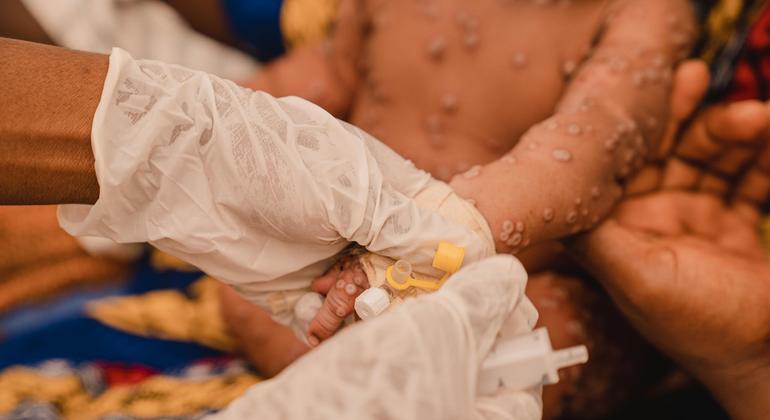Africa: Refugees and displaced people face increased threat from mpox outbreak


According to United Nations High Commissioner for RefugeesForty-two suspected cases of mpox have been detected in South Kivu province of the DRC – the war-torn Central African country that is the epicentre of the outbreak.
There are also other suspected and confirmed cases among refugees in the Republic of Congo and Rwanda.
The number of cases is increasing.
On August 14, the head of the World Health Organization (WHO) declared that the surge in mpox cases constitutes a public health emergency of international importance (PHEIC), with most cases so far detected in the DRC.
Recent WHO reports indicate that there are now more than 18,000 suspected cases of mpox and 615 confirmed deaths here, and more than 220 cases of the new Clade 1b mpox strain recorded in neighboring countries.
UNHCR noted that there were also suspected cases in “conflict-affected provinces” where 7.3 million DRC residents are internally displaced.
“In these areas, the virus threatens to exacerbate an already impossible situation for a population devastated by decades of conflict.“Forced displacement, serious human rights violations and lack of international support,” UNHCR said.
‘No space for isolation’
The refugee agency said people in displaced communities fleeing violence faced “enormous challenges” in implementing mpox precautions due to being housed in overcrowded shelters and limited access to essential services and humanitarian assistance.
“Displaced families live in crowded schools, churches and tents in farmers’ fields. There is no space to isolate them when they develop symptoms. of this disease,” UNHCR said.
Furthermore, community members are displaced in volatile areas of eastern DRC. difficulty in accessing the laboratory to test mpox.
Response agencies
WHO, UNHCR and partners, in coordination with national health authorities, have strengthened health system preparedness and response measures in refugee camps, including reinforcing handwashing stations in public places and transit centres.
As cases are confirmed or suspected, initiatives are underway at the national level to raise awareness and provide accurate information in the languages of displaced populations.
However, the scale of the outbreak has led to a shortage of community health workers able to meet the growing demand, UNHCR said.
The refugee agency stressed the importance of including refugees and displaced people in national preparedness and response efforts to this public health emergency, from surveillance to medical care.
“International solidarity is urgently needed to expand health services, quarantine centres, humanitarian shelters, access to water and soap for those forced to flee.“In conflict zones, peace is also essential to ensure a sustainable response to contain the spread of the disease,” UNHCR said.




